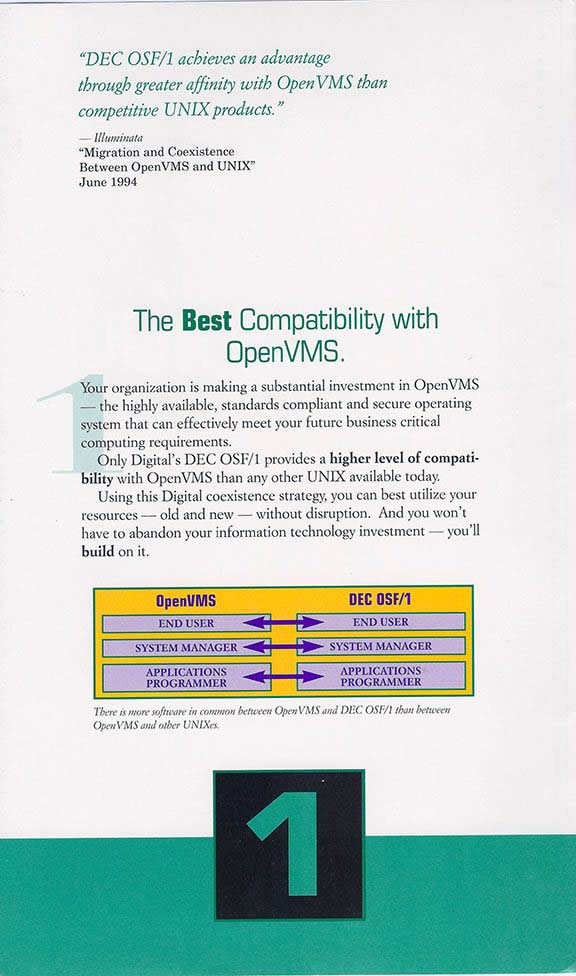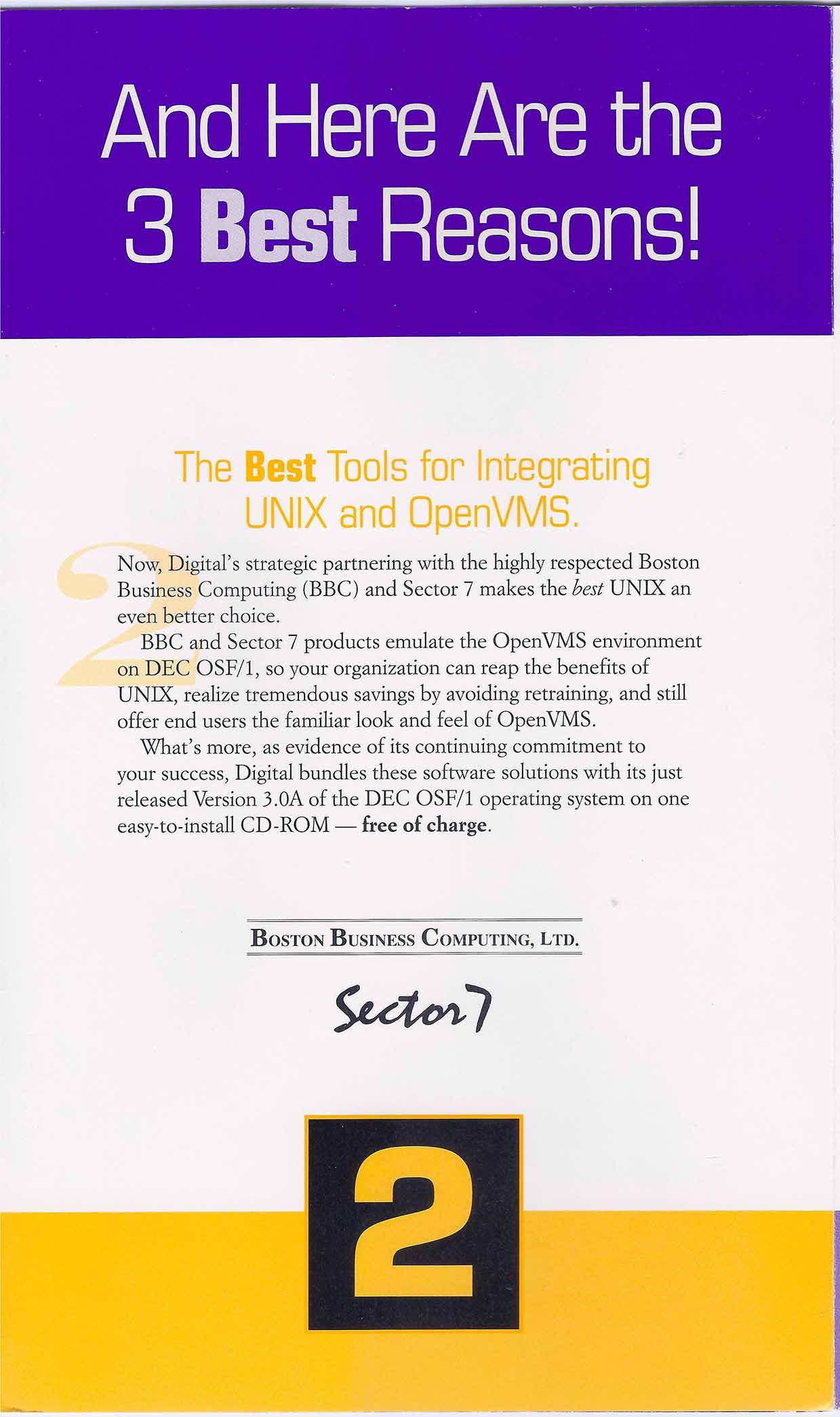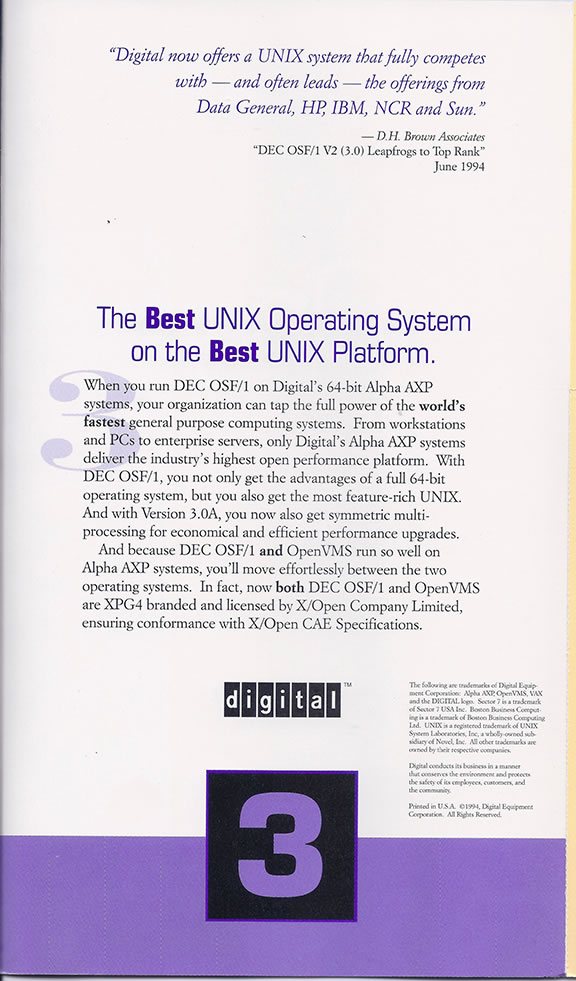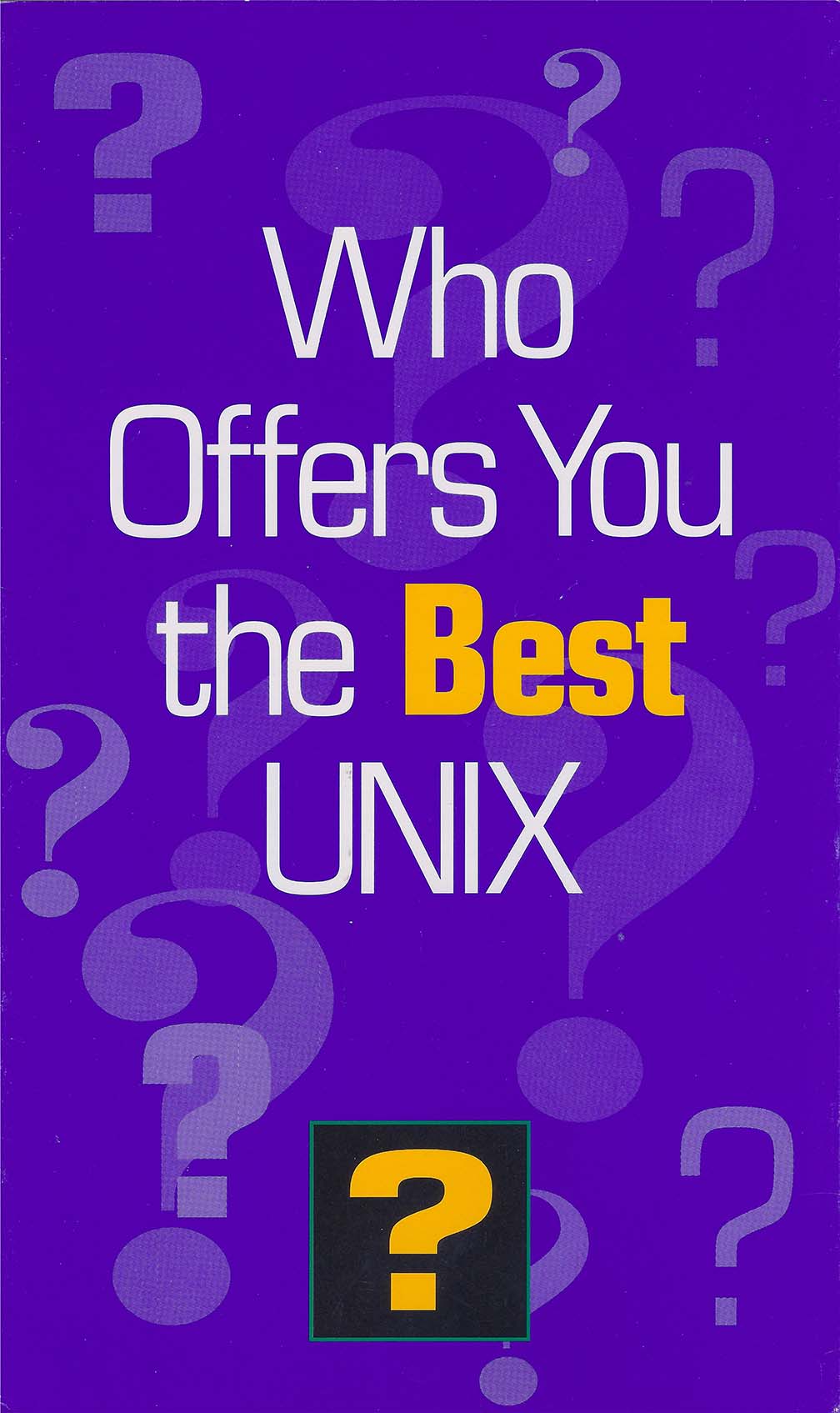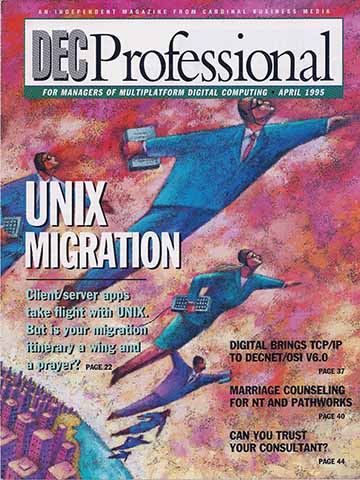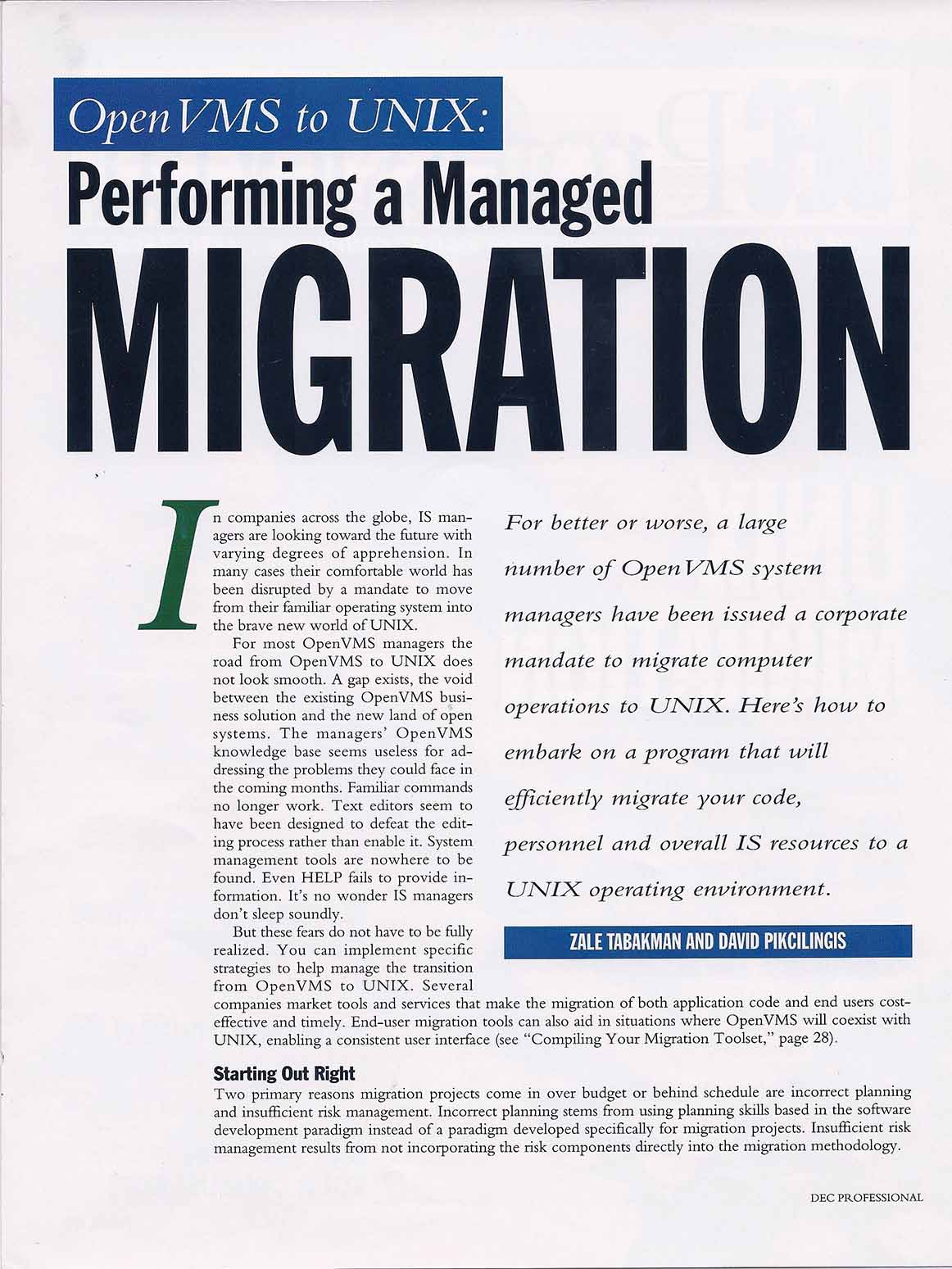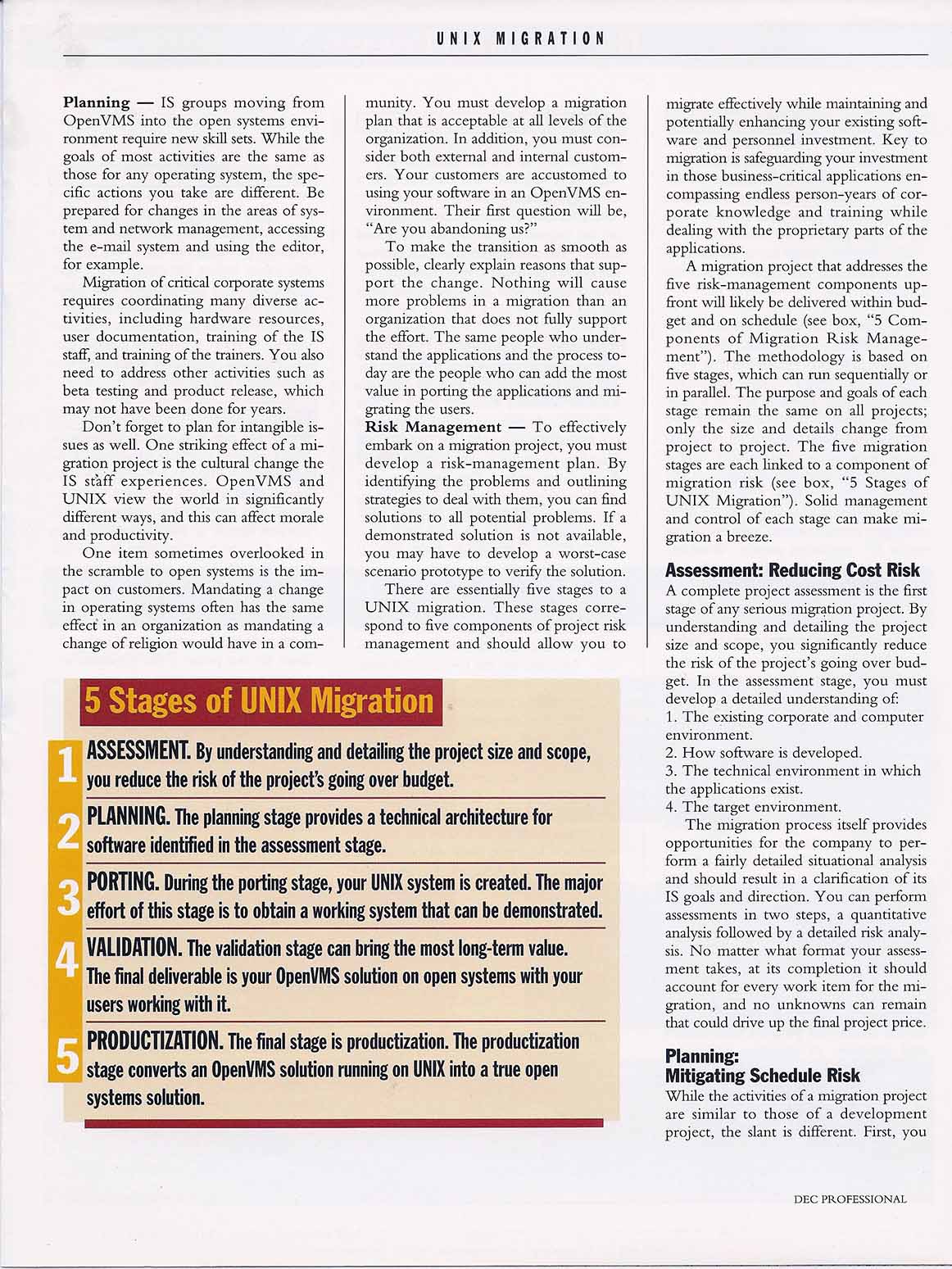Sector7 - Selection of Timeline Events - 30 years of complex migrations
This is a personal selection of some of our more interesting projects and events in our 30+ year history.
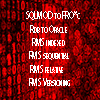 |
This icon Indicates a Migration Tool Debut. |
 |
This icon Indicates a Sector7 Office Opening. |
Below is a small selection of the hundreds of migration projects we've undertaken since 1985.

Established in Bedfordshire UK, October 1985
Oct 14, 1985
Microsoft BASIC to C
Created out First Migration product a Microsoft BASIC to C translator. Sold exclusively to PC Software Manufacturers. Our First Client was Pegasus Accounting.
1985
Produced first DEC translator to convert RSTS-E BASIC and BASIC+2 to C
It was this product that started Sector7 USA (in Austin Texas). Texas Instruments Like many hardware manufacturers at that time has a number of Linux/Xenix computer systems. TI has the TI1300 (x86 running Xenix) and the TI1500 Motorola 68020. TI wanted to move CCI/Triad from DEC PDP11's to TI1300. They had a "Bake Off" for the best migration solution. Sector7 won the deal and never looked back.
1987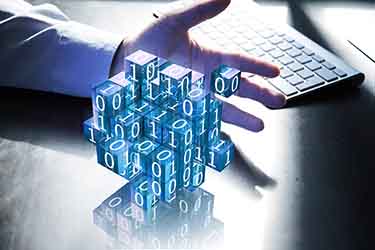
First DEC VAX/VMS Migration
Rolfe and Nolan, a large financial software house, asked us a simple question: "You can do PDP11 BASIC+2, Can you do VAX BASIC?". Being young and naive and having no idea about project planning, we said "Sure, How hard can it be?". Then we found out that along with VAX BASIC came: system services (SYS$, LIB$, SOR$), RMS, DCL, Job and Print Queue Management. If we had been smart, we'd have said "No", but, we were young, we worked all hours and made it happen.
1987
Sector7 Moved Headquarters to Austin, Texas
Sector7 Relocated Our Corporate Headquarters to Austin Texas. Our focus was on the VMS Installed Base; 50% of all VMS Server were installed in the USA, 35% in Europe, 15% in AP.
1987
VAX BASIC, SMG, DCL, RMS, BATCH and PRINT Queues Go Live
In Late 1988, Rolfe and Nolan went live and the first cut of the VX/TOOLS migration tool kit was established. We made mistakes (The S7 team want this to read "Discoveries" but then were definitely "Mistakes") with regard to future product development. One classic was using the same string descriptors that we used on the PDP-11 for VMS. This was not an issue if our clients only had VMS BASIC since the 'format' of the descriptor didn't really matter (to a certain extent). Later on when we started migrating C applications and our clients used the real VMS descriptor we realized that we were in for a big update. From this we learned a golden rule: If VMS does something one way - do it the same way or trouble will eventually come around. There's a reason VMS is one of the best operating system on the planet, it had great designers and a great company producing it. If they chose a way of doing things not doing it the same way will cause migrated applications to fail. So, we mimic exactly what VMS does. No arguments, no matter how odd the behavior may seem, it was done that way by DESIGN not by ACCIDENT.
1989
DEC invited Sector7 to put DCL on OSF/1 CDROM
DEC OSF/1 Marketing was very excited to put our DCL onto their new Linux; and mass mail the installed VMS base about how they can migrate to ALPHA OSF/1. The rest of DEC weren't as happy about the OSF/1 team trying to take away VMS users, and managed to "Lose" the response cards. DEC marketed OSF/1 as the "Best Linux" because it had Sector7's DCL.
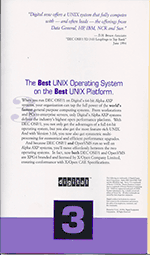 |
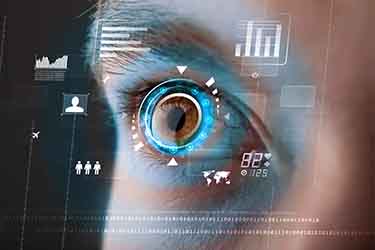
PROMIS MES Software
Sector7 Migrates PROMIS Systems (Toronto) FORTRAN, SMG, DCL, Queue's, RMS. The system is still in use today.
1995
Toronto SUN
Sector7 Migrates Toronto SUN Postage and Mailing System.
1995
DEC Professional
DEC sponsored Sector7 to write a piece on migration for DEC Professional. The words are still very applicable today.
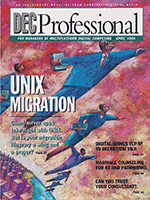 |
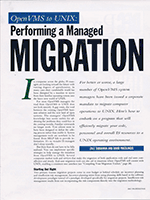 |
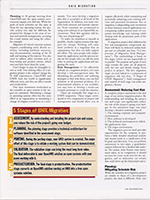 |
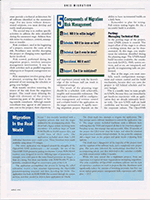 |
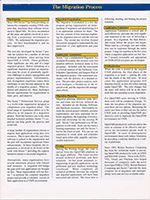 |
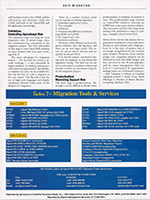 |
| See PDF | See Web Page |
1995
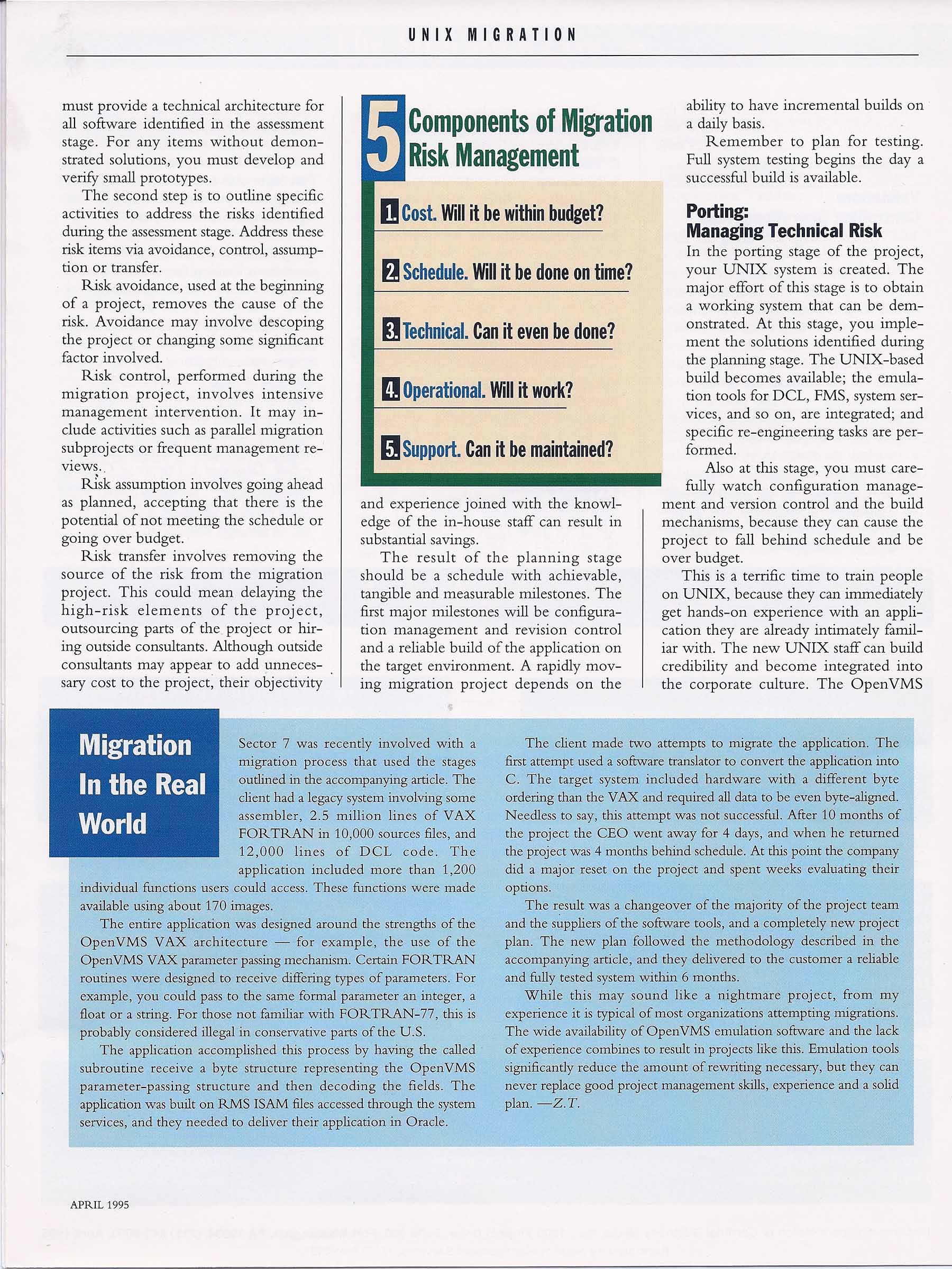
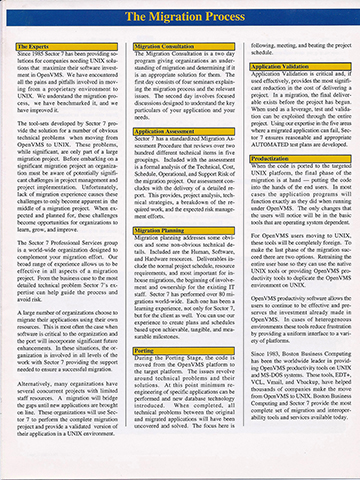
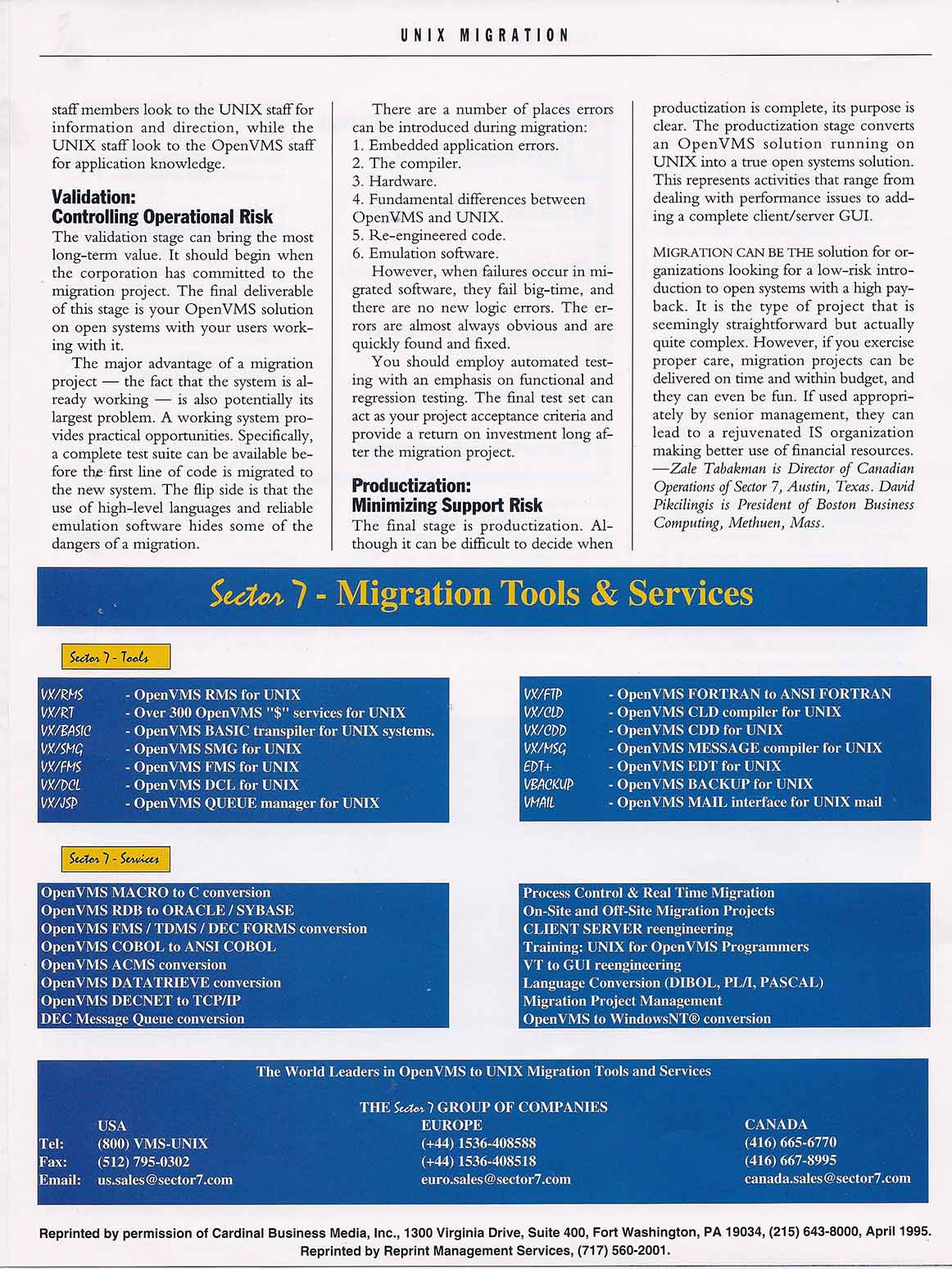

Chicago Stock Exchange
Sector7 Migrates CHX, more than 1 million lines of VAX BASIC, DCL, SORT, RMS, BATCH and PRINT. CHX sold their system internationally. The Migrated system was installed in over 12 international exchanges.
1995
DEC Engages Sector7 to train migration Engineers in Bangalore
DEC contracted with Sector7 to train 40 DEC VMS / OpenVMS Engineers in migration competence. these were all top Level VMS / OpenVMS engineers and the course lasted for 10 days.
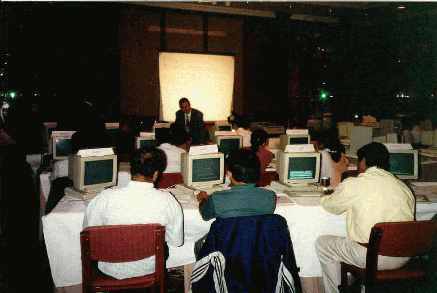 |
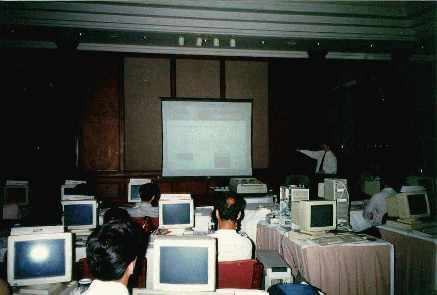 |

TDMS Release
Sector7 releases TDMS for Linux. TDMS form files translated into Flexus SP2 COBOL Forms Manager,
1996
SHAW Industries
Sector7 Migrates the largest carpet manufacturer in the world. VMS COBOL, MQSeries, Rdb to Sybase, TDMS to Flexus SP2.
1996
Sector7 Opens Office in Australia
You simply cannot go wrong having an Office in Australia. They are great people. We completely enjoyed our Australia Office
1996
Sector7 partners with IBM for "DEC Migration" programs.
IBM (also HP) partnered with Sector7 to provide migration tools and services from DEC VAX and ALPHA to the IBM RS6000.
1996
VX/RTR Released
Sector7 migrated one of the Largest stock exchanges. Written in VMS C and using RTR (Digitals Reliable Transaction Manager) together with DECForms
1997
Sector7 Opens Office in Stockholm, Sweden
We truly enjoyed have an office in Stockholm. We partnered with isite.se. If you ever visit Stockholm some "musty see's" are : The Vasa Museum, The Vasa ship capsized and sank in Stockholm 1628. After 333 years on the sea bed the mighty warship was salvaged and the voyage could continue. Today Vasa is the world's only preserved 17th century ship and the most visited museum in Scandinavia. The Cafe Opera definitely the place to see and be seen in Stockholm. Get here early, for those of us in boring software, we have to wait in line.
1997
Sector7 Helps get E*Trade ready for the SPO
1997
VX/CPP Released
Sector7's first VAX C to ANSI C translator.
1997
Sector7 Contracts to Become IBM's "Migration factory"
While successfully migrating PDP-11, HP-3000 and VMS / OpenVMS applications to UNIX and Linux, we were asked to provide a world wide UNIX to UNIX server consolidation practice to IBM. This practice eventually became known as IBM's Migration Factory.
IBM recognized that the key to low-cost low-risk migration is to keep the IP (Intellectual Property) in one focused group.
IBM asked Sector7 if we could do "UNIX to UNIX (AIX)" migration. At that time, Big iron was still king. with large servers costing $500,000 or more. If applications from HP/SUN/DEC could be ported "Quickly" and "Cheaply" to IBM hardware, then the cost of the server consolidation/Migration could be offset by the profit from the hardware.
Sector7 provided many large-scale server consolidations to IBM hardware. in some cases such, as Honeywell, and Ford porting thousands of applications from SUN and HP to IBM Linux and IBM AIX.
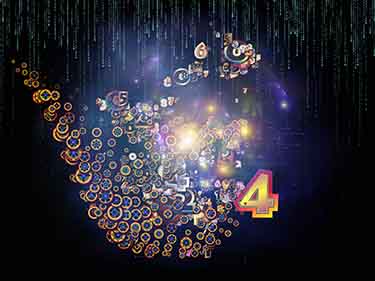
Harrah’s Entertainment WINet Application
More than 1 million lines of C, SQL.
1999
Sector7 Opens New York Office
Sector7 Opened its New York Office Approx 4000 Sq Ft
North America
New York
590 Madison Avenue 14th Floor
New York, NY 10022 Phone: 212-745-2833

Sector7 Opens Toronto Office
Sector7 Opened its Toronto, Ontario Office
1999
VX/PASCAL V1 (PASCAL to C) Telstra
Our First DEC PASCAL Translator. At the time C++ was just in its infancy and the C++ was not potable and didn't have the syntax or semantics to make it a good target language. We went with C, the product worked. Telstra went live.
1999
Sector7 Migrates the 911 Fire and Ambulance Dispatch System for NEW York CITY.
Probably the most complex migration we have ever done. Coded in 20 year old PDP-11 assembler, they wrote their own real time operating system, and completely relied on the RTOS relocating 512 byte pages that contained the engine, Unit, and Routine Data. The PDP-11 was executing 13,000 page swaps a second. We decided to migrate the system to VAX VMS. The VAX had a 512 byte page size and this was critical in order to meet the schedule. When we got the code running on the VAX, it would only do 2,000 page relocation per second. This was because of the accounting that each MGBLSC went through before relocating a page. So, we wrote our own $QIO device driver to do the page relocations. This got us up to 60,000 per second. The system has finally been replaced (2016). Our system went live just before 9/11.
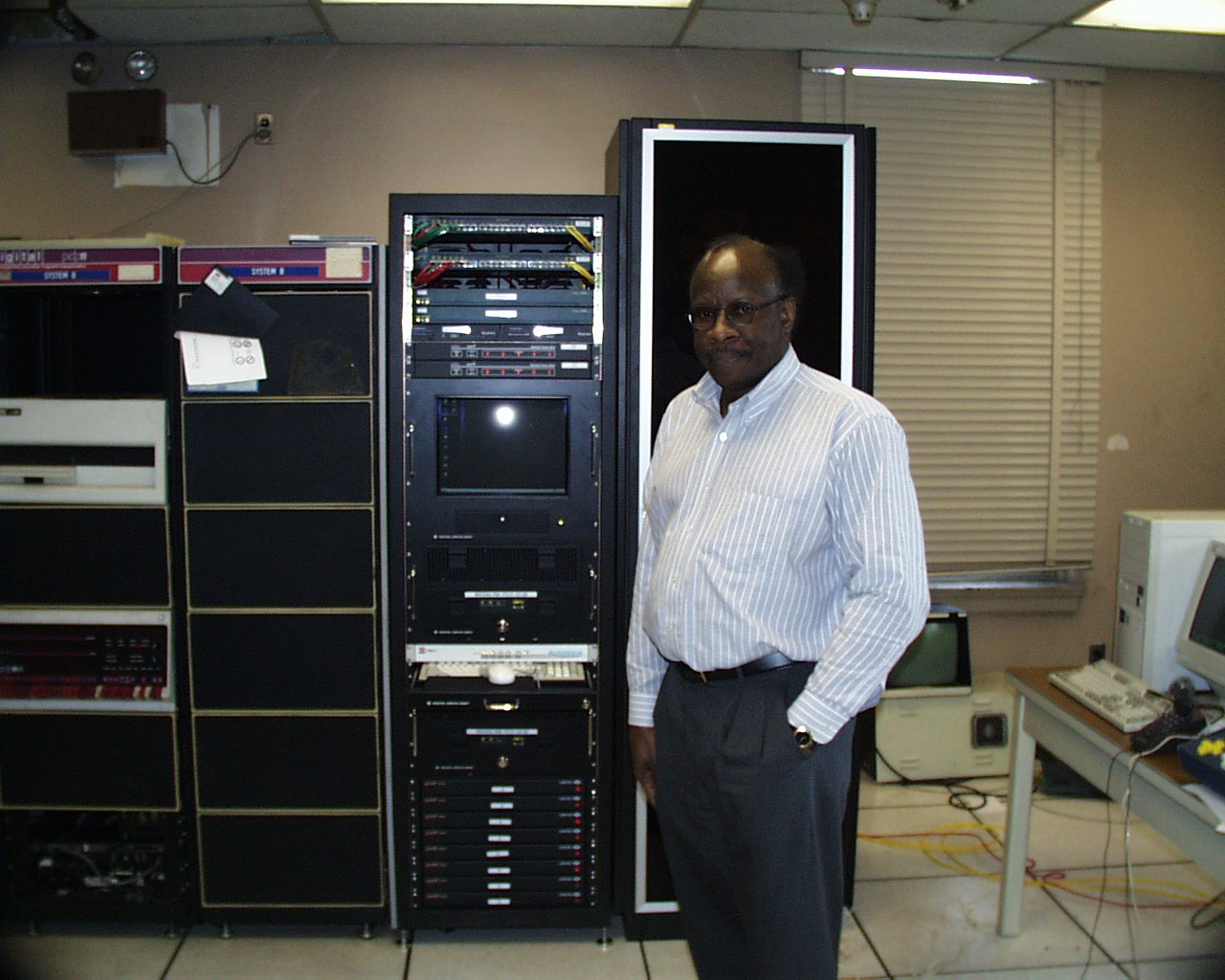 |
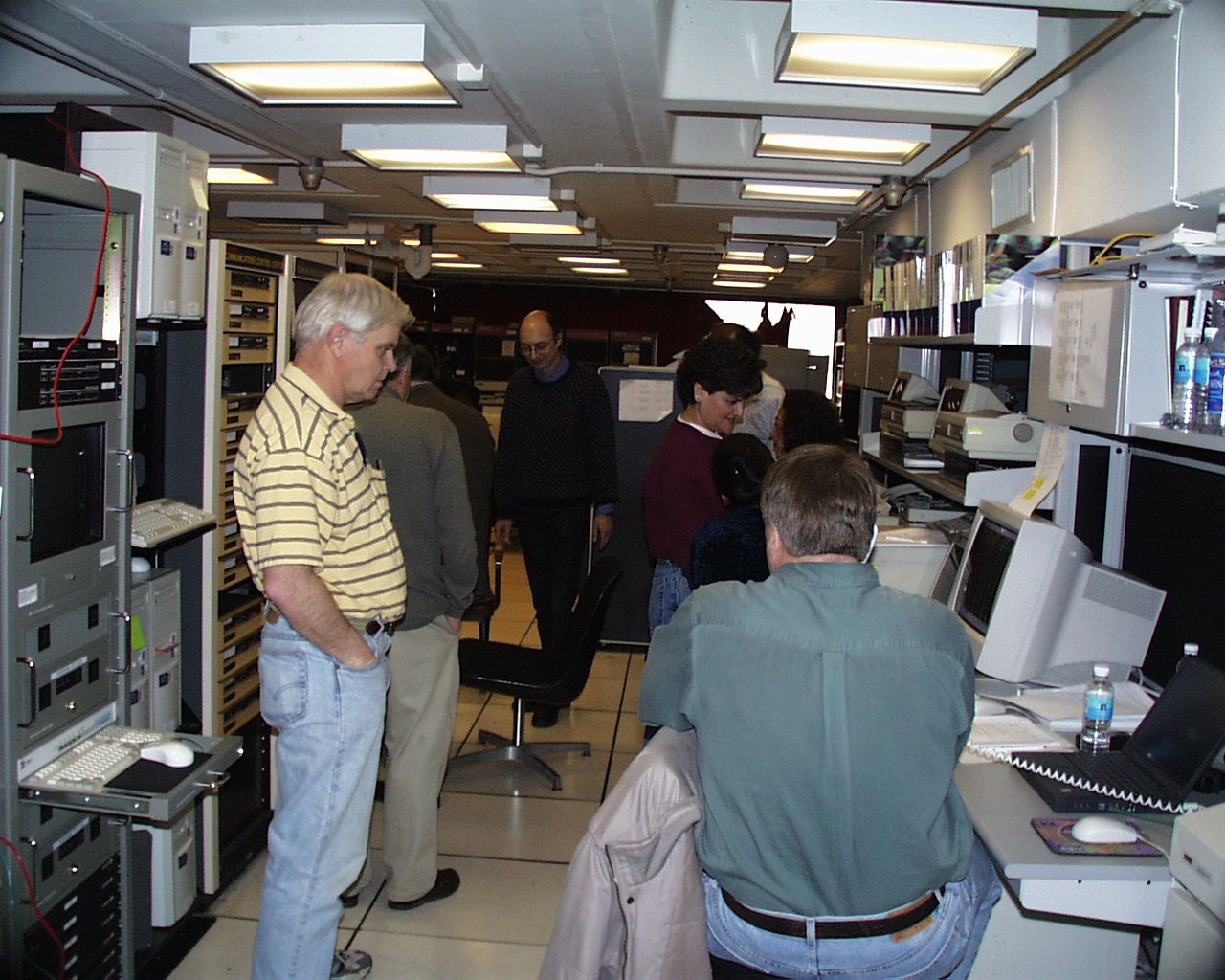 |

Fleet Bank.
COBOL: 2 Million Lines of Code, DCL, Print and Batch Queues, System Services, Rdb
2001
Standard And Poors
Sector7 Migrated the S&P CUSIP and BOND system COBOL: 2 Million Lines of Code
2001
Sector7 Migates T.D Ameritrade
.
2002
VX/COBOL Released
VX/COBOL is an excellent tool that will convert millions of lines of DEC COBOL to Fujitsu or Micro Focus COBOL. It is part of the Sector7 Continual Integration Suite and therefore will convert code time and time again with 100% efficiency.
2002
Blockbuster.
FORTRAN: 1 Million Lines of Code. SMG, DCL.
2003
Sector7 files 2 patent applications.
We decided to formalize mathematically the process of Costing a migration and also executing a migration. If we can mathematically write down the process, then we have a repeatable, scalable process. We filed 2 patents: 7,616,583 Method and program product for consolidating computer hardware resources [pdf], #8,869,124 Method and program product for costing and planning the re-hosting of computer-based applications [pdf]
2003
IBM buys the Server Consolidation Business unit of Sector7
https://www-03.ibm.com/press/us/en/pressrelease/6037.wss
IBM decided that it was going to get into "cloud" computing and also Pay per Transaction. Effectively, you only pay for the capacity that you use. Those of us old enough to remember Computer bureaus realize that there are no new ideas, just recycled ones. However, the economics of hosting cloud solutions and also server consolidation and outsourcing all depend on application running on 1 computer type and the knowledge being scaled. IBM did not want to take the chance of its "Migration factory" going elsewhere so they acquired the people and the IP (and Patents) who were invoked in the Linux to Linux porting. IBM did NOT acquire the VMS / OpenVMS Capability
Oct 16, 2003
Sector7 Migrates The Ford Time Work Oder System (TWOS)
As a subcontractor for IBM Global Services, Sector7 migrated Fords HP3000/MPE system to Red Hat Linux. TWOS was written in 'Transact' a 3.5GL written in about 1980. In addition to over 1 million lines of Transact, TWOS also make extensive use of MPE's intrinsic capabilities: IMAGE - a hierarchical database which we migrated to Oracle. 50 factories were migrated in all. For the first few factories we implemented a dual data strategy which kept the HP3000 up to date with the Linux Oracle system in case of a need to fall back to the original system. No fall back was required and all 50 factories went live within a year. The Ford team presented Sector7 with an "EASY BUTTON".
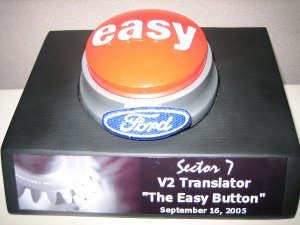

VX/RT High Speed AST Backplane Released
Sector7 migrated one of the Largest stock exchanges. Written in VMS C and using RTR (Digitals Reliable Transaction Manager) together with DECForms
2007
e-speed
Another trading system. e-speed made extensive use of the lock manager. All instruments held as locks with AST's triggered on time outs and free'd locks
2009
HH Gregg
Another interesting HP3000/MPE project. About 7 Million Lines of code, mostly in MPE COBOL (Sector7 have an MPE to Micro Focus Cobol Translator) but also including SPL, PASCAL, BASIC, IMAGE hierarchical database.
2010
VX/PASCAL DEC Extended PASCAL to C++
Our best translator product to date. All our 30 years of experience went into making VX/PASCAL produce 'beautiful' maintainable output that also works!
2012
DECForms IFDL to C++ Classes, ACMS TDF to Tuxedo
Re-release of DECForms and ACMS using more modern Linux/Windows capabilities.
2014
VX/SQLMOD SQLMOD to Pro*C Released
Converts Rdb SQLMOD to Oracle Pro*C
2014
Financial 12M LOC Fortran
We are under a non disclosure so cannot make public the name of this Institution. This application has over 12 MILLION Lines of FORTRAN, over 250,000 lines of DCL
2014
Electronics 2M LOC C, SORT, DCL, BATCH
We are under a non disclosure so cannot make public the name of this Institution. One of the largest distributors in the world/
2015
Logistics 8M LOC COBOL
We are under a non disclosure so cannot make public the name of this Institution. This application has over 8 MILLION Lines of COBOL, over 80,000 lines of DCL, They continue to maintain on VMS / OpenVMS and send each release through the Sector7 Continual Integration process.
2014
Insurance 4M LOC Fortran
We are under a non disclosure so cannot make public the name of this Institution. This 'world critical' application has over 4 MILLION Lines of Fortran, over 40,000 lines of DCL, They continue to maintain on VMS / OpenVMS and send each release through the Sector7 Continual Integration process.
2015
Manufacturing 3M LOC Fortran
We are under a non disclosure so cannot make public the name of this Institution. In addition to Fortran, extensize use of QIO to control PLC's, DCL etc"
2015
After 15 Years Sector7 finally updates the Web Site
Many customers have wondered why we only update the web site every 15 years. The answer is simple, We are Just Too Busy. However, when Google announced that you wont be seen in the ranking unless you are mobile friendly we figured that it was time. So, here it is. All "Responsive Design" .. Thanks twitter . great job with "Bootstrap". Everyone codes at Sector7, the CEO down. So, out came Dreamweaver and a bunch of web searching and its almost done. Your comments would be very welcome. Personally, I can sit and watch the Adobe Stock Photo's of 'Guys with Gears' for ever, and considering they are in the template for every page .. if you've made it to the time line you are probably sick of them.
May 16, 2016